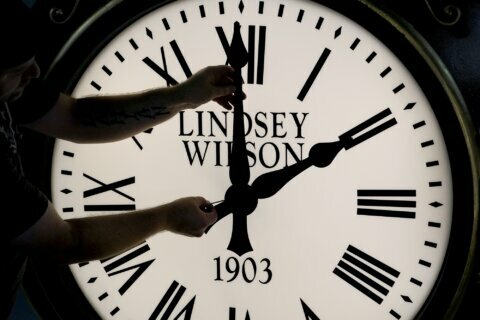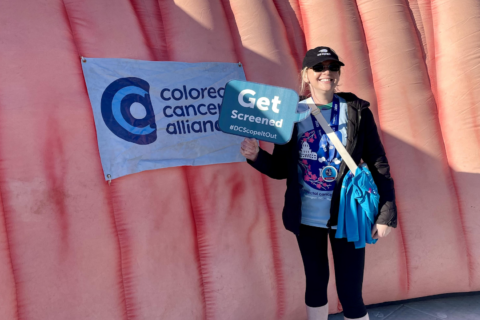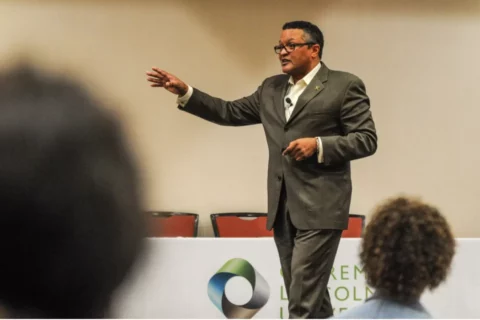Saturday, Nov. 19 is World Toilet Day, a day officially recognized and observed by the United Nations to raise awareness of the 3.6 billion people without access to managed sanitation.
Going to the bathroom is not something people think about or want to think about, but for many people in the world, including in the D.C. area, potty planning takes up a lot of their time.
In 2017, the People for Fairness Coalition’s inventory found that there were only three public restrooms open 24/7 in all of D.C.
The Public Restroom Facilities Installation and Promotion Act in 2019 established a working group made up of District and federal agencies to select possible sites to install public restroom facilities.
Earlier this year, three sites — near Union Station, Dupont Circle and Starburst Plaza — were identified as possible locations for public restrooms, Axios reported.
The working group report said future public restrooms will be helpful for tourists, expectant mothers, restroom-challenged individuals, residents experiencing homelessness and others. And while the need for public toilets did not arise during the COVID-19 pandemic, it “certainly highlighted the need for public restrooms as a form of prevention of spreading communicable diseases.”
Ending potty-shaming
Loo Aid at The Comedy Loft of DC on Saturday is a fundraising “craptastical” to raise money for the Crohn’s and Colitis Foundation. The organizers of the event say it’s difficult to
“We’ve all been on a long drive in the subway or on the street or in a session we can’t leave … needing to go. And in those moments, I think we understand how much a toilet is actually necessary,” said Shawn Shafner, the founder of the People’s Own Organic Power (POOP) Project, one of the organizers of Loo Aid.
The POOP Project aims to promote conversations about sustainable sanitation through art, theater and education, including taking out the “cultural shame” of talking about going to the toilet.
The organization started in 2010 and stemmed from Shafner’s experience as a child.
“I was a kid who held it in, who felt embarrassed to go outside of the house,” Shafner said.
While the actor toured with Nickelodeon’s Backyardigans in 2008, Shafner set out to create a “poop-positive space,” while sharing dressing rooms and being on the road with his colleagues.
“I think the more we talk about it, the more comfortable people get, the less shame there is,” said Jessica Heinzelman, co-founder and CEO of Throne Labs, a D.C.-area based company on a mission to provide access to a clean bathroom to everyone.
Throne bathrooms have been popping up in D.C.; the latest one is a public art Throne bathroom near the Navy Yard.
“We’ve actually had some people post Throne selfies, #throne selfies, to Instagram. It’s fun. It’s bright,” Heinzelman said. “Our vision is we want to provide a nice bathroom experience (and) not be the bathroom of last resort.”
Heinzelman said a Throne bathroom is portable, but “it feels like a really nice bathroom inside.”
View this post on Instagram
Why having public restrooms is important
In the U.S., there are eight public restrooms per 100,000 people, according to a study by QS Supplies, a U.K. toilet supplies company. That’s tied with the Netherlands, Poland, Botswana and Georgia. Iceland tops the list with 56 toilets per 100,000.
By comparison, the U.S. has the third-highest population in the world at more than 330 million, whereas Iceland has some 350,000 people (the population is small enough that in 2013, there was an app that notified Icelanders if they were dating a close relative).
With the dearth of public restrooms in the U.S., the retail bathroom has become the “de facto public restroom,” Heinzelman said. And that put a strain on businesses.
Throne has partnered with the Capitol Riverfront BID, and Heinzelman said it has taken a lot of pressure off businesses in the area.
“Whether it’s the labor, the people at the counter who have to take off 15 minutes or half an hour to clean the restroom, or deal with issues involving the restroom. Or the cost of the supplies — the toilet paper, the soap and other things. So what we’ve heard in places where we’ve put Thrones … is those businesses really love it because it’s taking the pressure off them to provide this kind of uncompensated service that’s taken for granted,” Heinzelman said.
View this post on Instagram
Access to public restrooms is also a matter of equity. Throne found during its research what workers, such as ride-share drivers and delivery people, did when they needed to use the restroom.
Heinzelman said one ride-share driver would keep a tie so he could blend in and go into hotels when he dropped people off.
The People for Fairness Coalition, whose goal is to convince D.C. to install public restrooms, conducted its own study between 2015 and 2016 to see whether establishments would let people use their restrooms depending on their appearance (i.e. they appear to be experiencing homelessness or they were wearing nice clothing).
The toilet has always been kind of a battlefield that has been at the forefront of civil rights.
“They’re a part of how we fought for equal access in the ’50s, and the ’60s … It’s about transgender issues, and disability issues,” Shafner said.
But really, it’s an issue for everyone, Shafner said — from people who are pregnant, senior citizens, caregivers of children and seniors, those with colostomy bags and people with illnesses, such as Crohn’s disease and colitis.
Heinzelman said her company’s aim is to provide toilets to the people of D.C. — whether you’re a parent with young children, a trans person, an older person with medical issues, a tourist, a biker or a jogger.
“Toilets are one of those places where in public space, we have a little privacy, and we can take care of things we need, and that can range from a health care need, (such as) your diabetes medication, to having a cry,” Shafner said.
Loo Aid is this Saturday at the The Comedy Loft of DC, 1523 22nd St. NW. The show starts at 4 p.m.; door time is at 3 p.m. Tickets are $22/$33.








